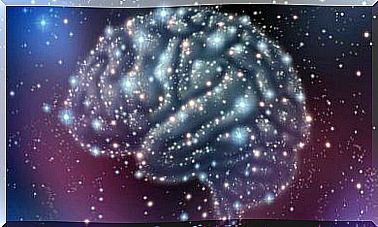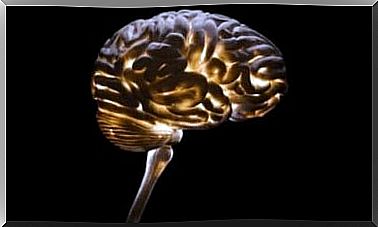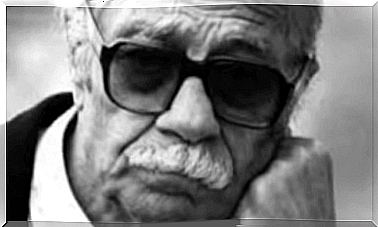Emotional Addiction And The Fear Of Being Abandoned

Feeling safe in all areas of our lives is important for experiencing well-being. But the greatest need for this is in our relationships. Where there is security, we feel trust and protection. If these feelings are threatened by the ghosts of the past, fear will invade our lives. One of the biggest of these is the fear of being abandoned.
The uncertainty surrounding the fear of being abandoned can undermine a relationship. This is especially true when the origin of it all is a broken and repressed childhood. Those who are obsessed with this fear can inadvertently damage their relationship and get their partner to confirm what they already suspected. On the other hand, the relationship can become so devastating that both members are caught in a spiral of discomfort and suffering.
Being afraid that the relationship will not work from time to time is quite normal. But living in a continuous situation of mistrust and hypersensitivity to rejection only gives discomfort and instability. Let’s take a closer look at what the fear of being abandoned entails.
The importance of creating a connection
During the first year of life , we establish an emotional bond with our most important caregiver, which is known as attachment. Through this relationship we will develop a number of emotional abilities, this is also based on the type of bond we build. We will use these in our future interpersonal relationships.
If this connection never happens, it will cause major problems in the future. If this is the case, our physical and emotional needs may have required us to grow up and feel unprotected, insecure, and suspicious. This is one of the consequences explained in Bowlby’s attachment theory (see below). He explains the deep feeling of being abandoned that many people experience, even though they are surrounded by their loved ones. Let’s look at an example to try to understand it better.
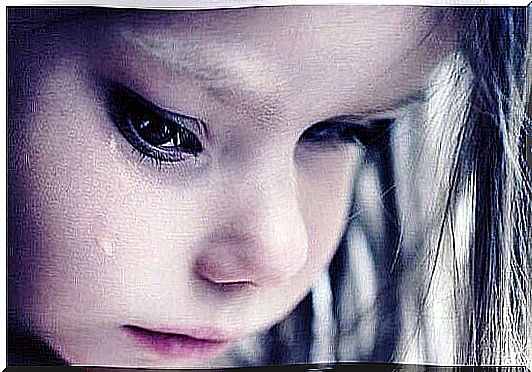
The hungry baby
A baby feels hungry because it has not eaten for several hours. His whole body tells him he’s hungry. However, the only tools at his disposal are crying and anger. His mother, who is the most important caregiver in this case, catches the signals he sends out and interprets that he is hungry. Why? Because she has learned to discover her child’s physical and emotional needs and to satisfy them. This will restore the child’s physiological and emotional balance.
When the child experiences this type of experience, he will always look for physical closeness with his mother. He trusts that she will be able to calm him down so that he can regain his balance. Later in the development, the child will be able to cope in difficult situations just by seeing that the mother approaches him or that she says: “I will be back soon”.
Because of this, you are calm when something similar happens to you when you are an adult. You know that in a few hours you will see your relative, partner or friend. Your brain has learned that it can behave calmly in this type of situation.
If the infant brain has never experienced the feeling of calm or the belief that after a bad experience you can experience peace, then the adult brain will not either. You will not feel safe in an intimate relationship because you have not learned where to find peace.
In addition , the absence of contact and lack of care results in higher production of adrenaline in the brain. This results in more aggressive and impulsive behavior. It also makes it difficult for us to control our emotions.
The emotional wounds of breaking up in couples
As we can see, there are wounds in the deepest part of us even though we cannot see them, such as the feeling of being abandoned. They are capable of affecting very many parts of our lives. Many situations we experience in childhood also affect us as adults. If these are not taken seriously, they are able to tear us up inside without us even realizing it.
Bowlby , in his attachment theory, states that emotional bonds formed in childhood continue in the form of models in the representative world of the adult. Hazan and Shave also confirm this in their investigations. They showed that adult behavior in relationships is determined by the mental perceptions that occurred in the relationship between the child and their parents.
In this way we can see that the fear of being abandoned in a relationship has its roots in childhood. They are the ghosts of the past that come back and take with us all our uncertainties. They try to remind you that you are not worthy of receiving love or good treatment from other people. They usually occur because the brain receives an alarm signal.
Emotional attachment
A word, a place, a type of behavior or memories are enough to activate a “crisis situation” in a person who could never feel completely safe or secure. From there, a landslide of emotions and behaviors begins to emerge. Instability, apathy and sadness, to name three.
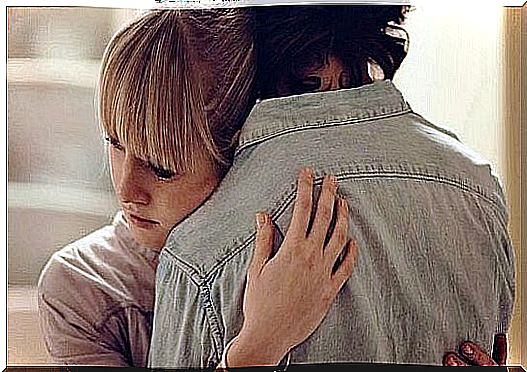
In addition, the person who experiences fear of being abandoned develops emotional dependence on their partner. They end up constantly needing confirmation. If their relationship is toxic, they will not be able to end it or distance themselves from each other. It is as if they were never something without the other person. They are able to do absolutely anything to keep the relationship going. That is, everything except reopening old wounds.
In some cases, this fear of being abandoned leads to a kind of dependence on the lack of dignity. Since they do not feel wanted or safe, they must confirm that that identity is still there. Therefore, they reject or do not believe it if they actually find protection and security. All of this is due to deep-seated traces of untreated post-traumatic stress.
The fear of being abandoned
The fear of being abandoned is a very deep emotional wound rooted in childhood. Healing this wound means accepting and forgiving the past to let it go. This is a complicated task. Especially if the person is not aware of how they have been conditioned by their past experiences. This is often exacerbated by their own defenses. What should have been their form of protection turns out not to be so impenetrable after all.
In fact , it is recommended to go to a professional in the most complex cases. They will be able to help you, especially in the first important steps. Another aspect that needs to be worked on is self-confidence. It is usually cracked, even broken. Learning to value oneself is important in breaking the chain of emotional dependence. In addition , it will be much easier to deal with emotions and thoughts that are rooted in previous experiences with the help of high self-esteem.
To change our emotions
Emotions such as anger, irritation, fear or sadness are very common in people who are afraid of being abandoned. You need to learn to reduce their intensity and interpret what they really mean. When you do this you will be able to change them into something positive.
Negative assumptions and expectations are also elements that must be taken into account. Most of the time it is our thoughts that affect and increase our fear. They make it far worse than it really is. If we are afraid that our partner will leave us, we become more aware of their behavior and words. We often misinterpret them to confirm our fears.
As we can see, healing the fear of being abandoned involves a process of reconstruction. This is a time consuming process. We must learn to prioritize and uncover our fears. This is something we must not forget. On many occasions, what we believe is happening on the outside is nothing more than a projection of what is happening inside us. If you can identify with any of these symptoms, we encourage you to seek help before it is too late.
